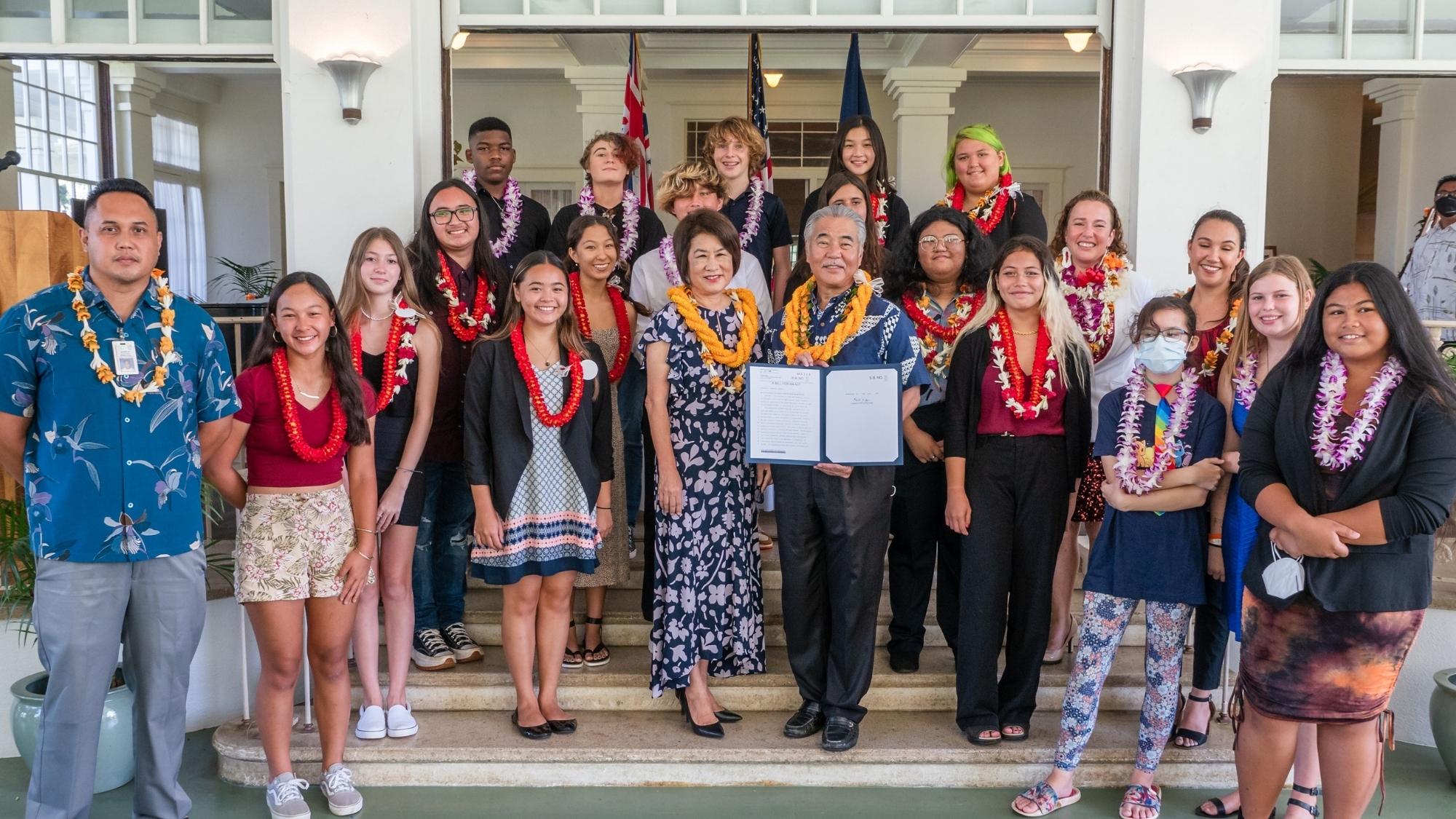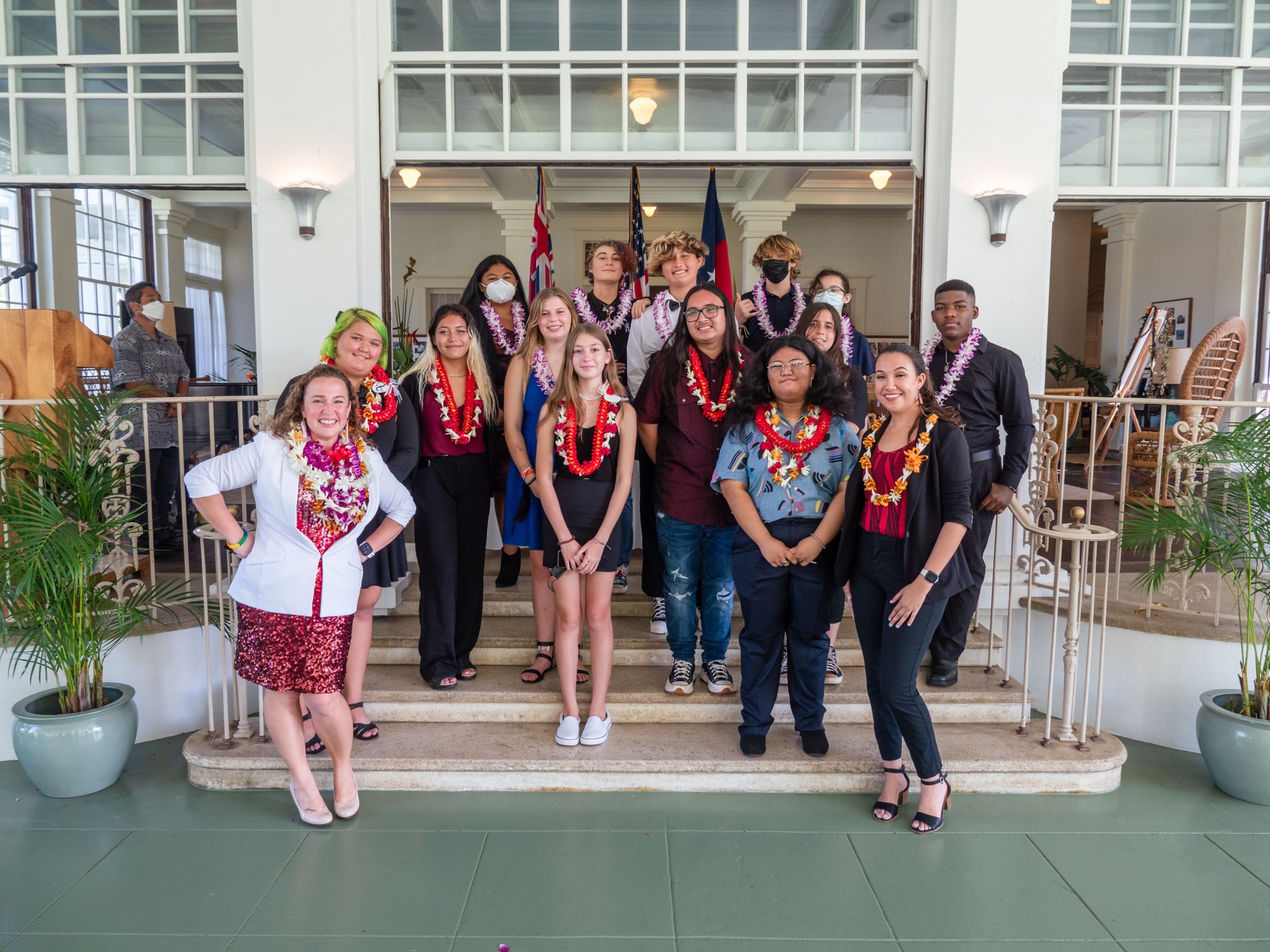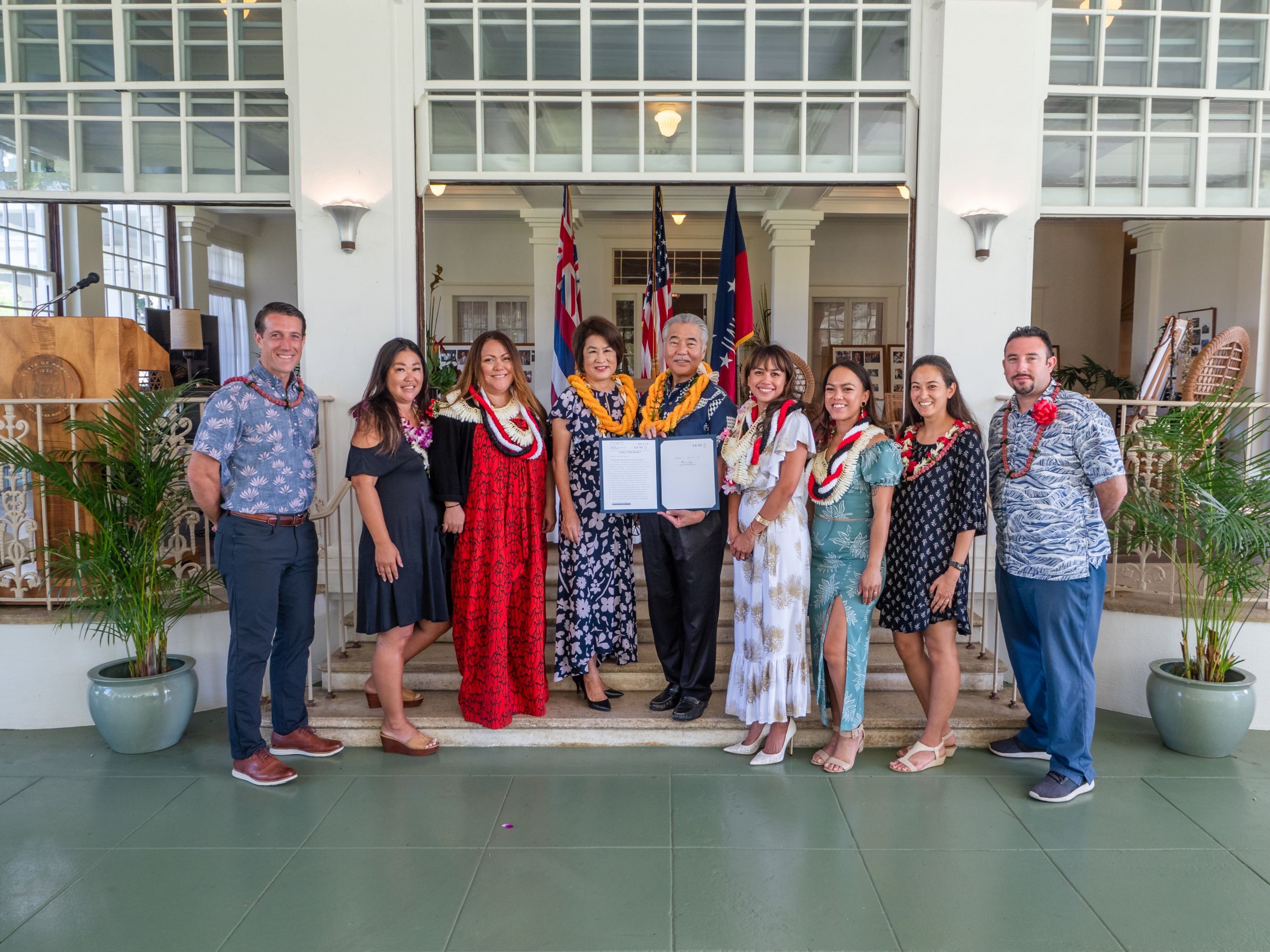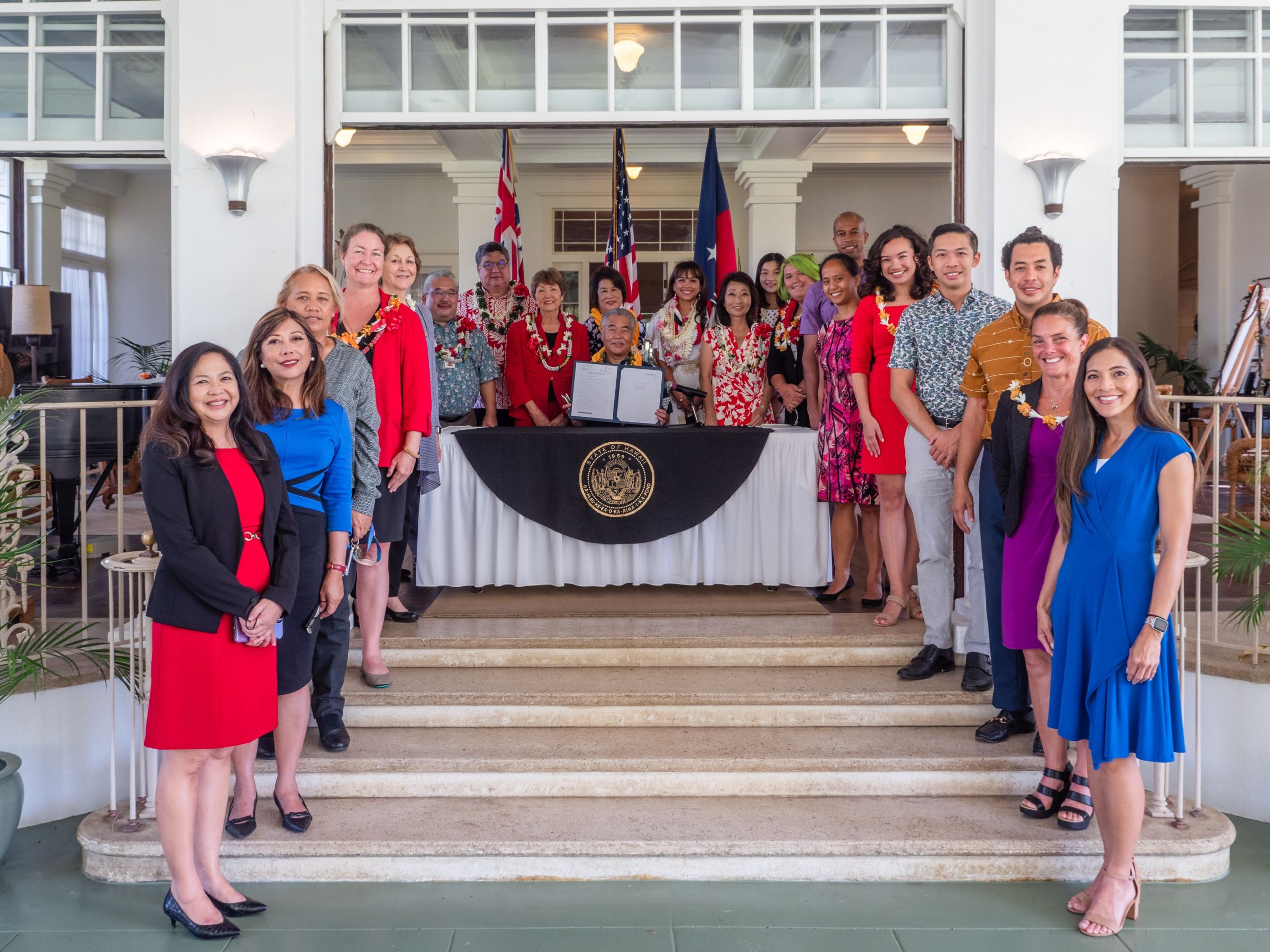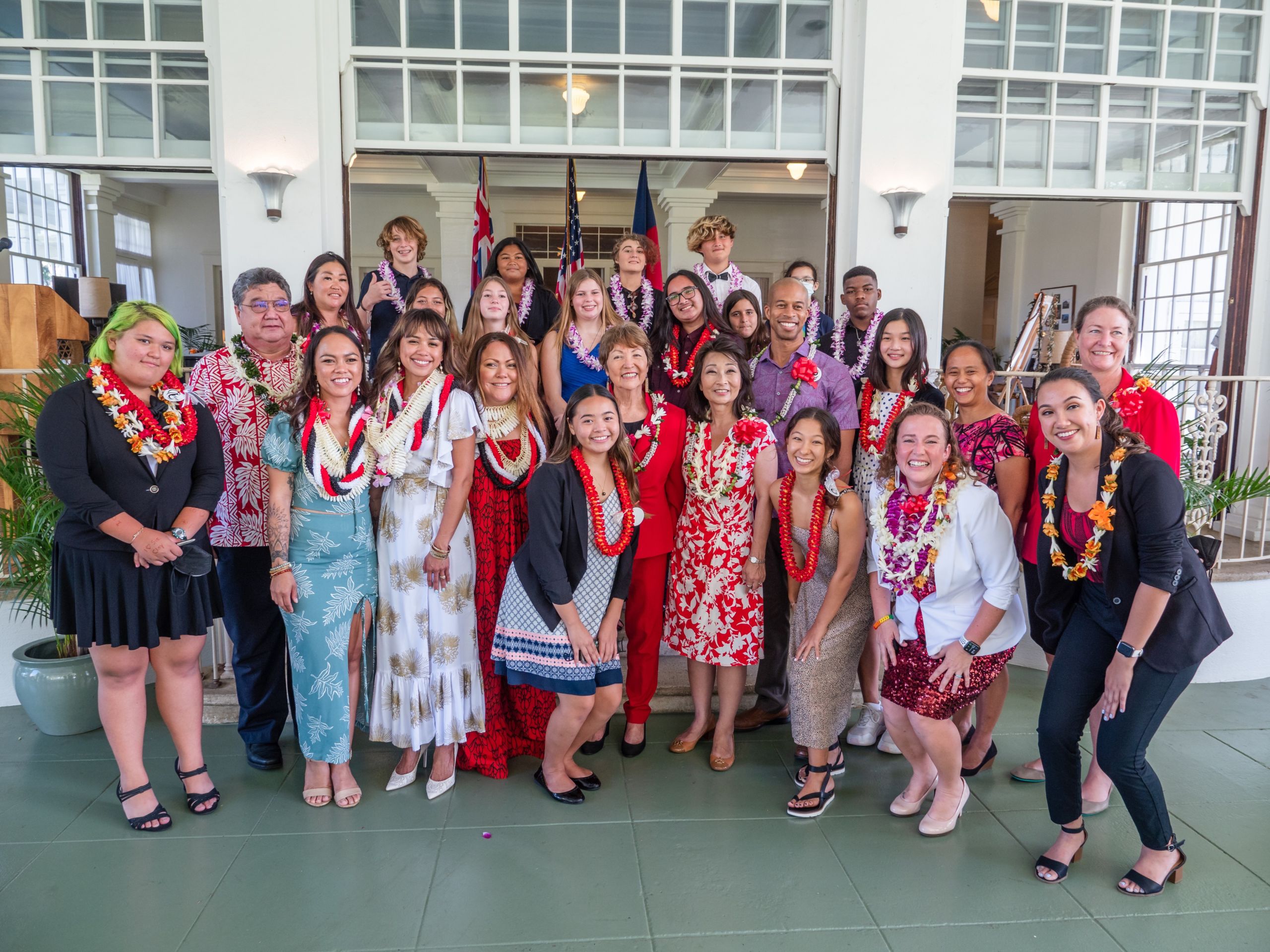Governor signs Senate Bill 2821 into law before students, educators, supporters
Posted: June 21, 2022
All Hawaiʻi public schools, including public charter schools, will supply menstrual products to students free of charge. Gov. David Ige signed Senate Bill 2821 into law Monday, making Hawaiʻi the sixth state in the country to provide quality menstrual supplies free of charge to public school students.
“This measure ensures that students have full and free access to menstrual products whenever they need them on campus,” Ige said during Monday’s bill signing at Washington Place. “Period poverty is a real issue for young people and can impact their education in substantial ways. No student should have their educational journey hampered because of lack of access to menstrual products.”
The law goes into effect July 1. The governor has yet to sign off on the state budget, which allocates $2 million for period products. In the meantime, the Hawaii State Department of Education says it is providing free pads until state funds are finalized.
The signing caps off a years-long journey for ʻIlima Intermediate School teacher Sarah “Mili” Milianta-Laffin and her students, who have been lobbying for menstrual equity at the state Legislature since 2019.
“This is a culmination of years of work: data collection, storytelling, educating the public on what period poverty was, educating the legislators on period poverty to make them understand why we needed to fix this issue in our school,” Milianta-Laffin said.
Several students took part in Monday’s ceremony as emcees and guest speakers.
Telia Hao-Aunese, a former ʻIlima Intermediate student who will be entering 9th grade at Campbell High this fall, said, “Standing here today, being in Queen Lili’s (Liliʻuokalani, Hawaiʻi’s last reigning monarch who lived at Washington Place) light-hearted presence, I’m proud to say that we did not give up. She once said, ‘Never cease to act because you fear you may fail.’ We took that quote to heart and pushed through all the ‘nos,’ justifying that one ‘yes,’ because we knew that that’s all it would take to succeed.
“Being a teenager myself, I’m well aware of the words others often used to describe us as a generation: lazy, arrogant, careless, and aggressive, just to name a few,” Hao-Aunese continued. “But seeing so many of my friends up here on this stage, getting to experience the accomplishments of our efforts, it just goes to show how amazing young people can be when we put our efforts into things that we’re passionate about.”
One of the key factors in the bill’s passage: a pilot project organized by Maʻi Movement Hawaiʻi that studied the impact of providing free period products for students at six schools across the state.
Maʻi Movement Hawaiʻi co-founder Nikki-Ann Yee, said, “It’s there that we heard from longtime educators that this was a persistent issue, and it’s from the work of our faculty and students in our pilot — Chiefess Kamakahelei [Middle], DreamHouse ʻEwa Beach, Farrington High, Kalama Intermediate, Kaʻū High and Pāhala Elementary, and Keʻelikōlani Middle — that we found a way to fix it.” Yee received the Hawaii State Teacher Association’s 2022 Friend of Youth Award for her work.
Chiefess Kamakahelei Middle science teacher Sarah Kern was also instrumental in the push for menstrual equity at the Legislature this session.
“As many teachers do across the state, we keep our desk drawers extra stocked. We bring extra pads on field trips. We help students cover their stained clothes when they need it, and we mastered the art of discreetly passing a pad or a tampon to a student in class or in between class, because we know that there is still that stigma and embarrassment that comes along with menstruating,” Kern said. “I’m so excited that we are making improvements towards our student health and well-being and making schools just more equitable places for learning.”
Kern said thanks to the pilot, “We were able to stock all of our bathroom stalls and our classrooms with products for students to access as they needed throughout the year, and we also collected evidence of the positive impact that these products had on our students.”
The result, Kern noted, was that “students are in school more. They’re in class more because they don’t have to go all the way to the health room. It’s right there in the bathroom stall.”
Milianta-Laffin says the experience was a powerful lesson for her students.
“People will always tell me, ‘Mili, it’s so great that you gave your students a voice,’ and I kind of bristle at that because these kids, they have a voice. What I did was I amplified their voice and got it into the halls of power where they deserve to be heard,” she said.
“Legislators all the time make bills about students without ever talking to students, and this is something that kids say they needed for their school, and they wanted to make it happen for fellow students,” she added.

